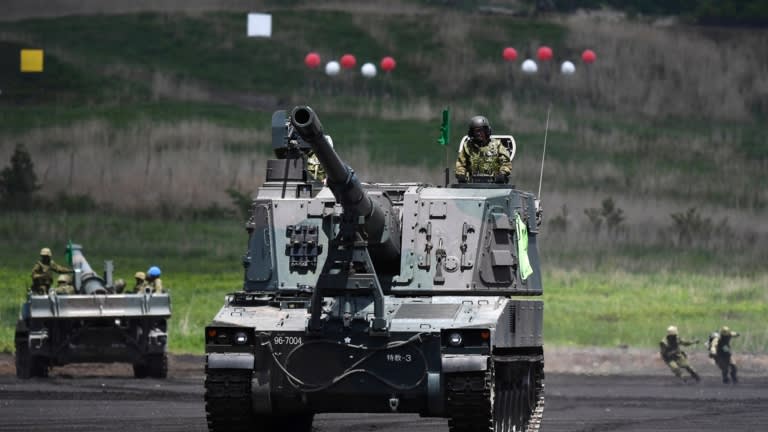NEW YORK — Washington is urging its allies to increase military spending to at least 2% of their gross domestic product to counter China, putting pressure on Japan to take a more assertive military role in the region.
“To our allies and partners around the world … we urge you to increase your defense spending to at least 2% of GDP, and to make the needed investments to improve your capabilities and capacity, just as we are doing with our armed forces,” to achieve their shared goals, U.S. Defense Secretary Mark Esper said Wednesday at a Rand Corp. event.
Esper cited “Beijing’s aggression and disregard of its commitments in the South and East China Seas,” among its “attempts to reshape and undermine the international order that has benefited nations large and small.”
His proposition would have Japan, which has been pursuing a stronger alliance with the U.S., more than double its defense budget.
Washington has been calling for Tokyo to share more of the burden for their collective security in the Indo-Pacific as China’s influence in the region continues to rise.
Japan has approved fiscal 2020 defense spending of 5.31 trillion yen ($50.5 billion), a record high but still just 0.9% of its GDP.
The Asian country has been careful to keep its defense budget under 1% of GDP in a so-called minimalist approach to security, conscious of concerns from neighboring South Korea and China, which have not forgotten World War II.
China announced this May a 2020 draft defense budget of 1.27 trillion yuan ($187 billion). The country’s military spending has hovered around 2% of GDP since 2000, according to the Washington-based Center for Strategic and International Studies.
Over the past year, Beijing has stepped up its activity near Japanese-administered Senkaku Islands, which it claims as the Diaoyu. It denies having an expansionist agenda.
“Washington needs to continue working with Tokyo to move Japan beyond its comfort zone to assume greater security roles with less restrictive rules of engagement,” wrote Bruce Klingner, senior research fellow for Northeast Asia at the Washington-based Heritage Foundation’s Asian Studies Center, in a report published last week.
The U.S. also reportedly asked Japan last year to quadruple payments for the continuing American military presence there.





